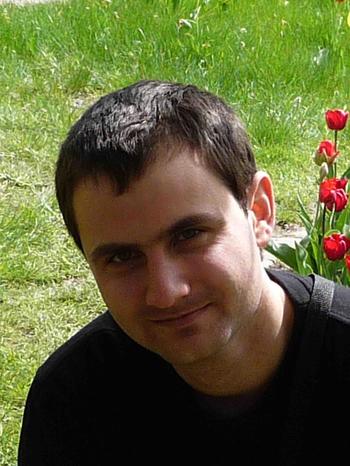Philipp Kandler

International Research Training Group "Between Spaces"
Movements, Actors and Representations of Globalisation
PhD Candidate
Project: „Reactions of Latin American Dictatorships to Human Rights Criticism and their Participation in Inter- and Transnational Discussions on the Concept of Human Rights in the 1970s. Case Studies Argentina (1976-1983) and Nicaragua (until 1979)."
14195 Berlin
Education
|
10/2013 –03/2016 |
Master of Arts in Global History at the Freie Universität Berlin. Thesis: „The International Image Campaign of the Argentine Junta (1976-1981) und Human Rights“ |
|
10/2010 – 09/2013 |
Bachelor of Arts in History (main subject), Latin American Studies and Political Science at the Freie Universität Berlin. Thesis: „German-Nicaraguan Relations 1933-1942. |
Work Experience
|
seit 2015 |
Founding member and co-editor for the student journal „Global Histories. A Student Journal“ |
|
2015 - 2016 |
Member in the organizing group for the “Global History Student Conference”, Berlin 2015 and 2016 |
|
04/2014 –03/2016 |
Student assistant at the Collaborative Research Center (SFB) 700 “Governance in Areas of Limited Statehood”. Research Project D9. |
|
05/2009 – 03/2010 |
Voluntary Work for the association „Städtefreundschaft Frankfurt – Granada (Nicaragua) e.V.“ in Granada, Nicaragua |
“Reactions of Latin American Dictatorships to Human Rights Criticism and their Participation in Inter- and Transnational Discussions on the Concept of Human Rights in the 1970s. Case Studies Argentina (1976-1983) and Nicaragua (until 1979).”
Supervisor: Prof. Dr. Stefan Rinke (FU Berlin)
This project enquires into how Latin American dictatorships in the 1970s dealt with increasing human rights criticism, which threatened to isolate them internationally. More specifically, it looks at the cases of the Argentine military dictatorship (1976-1983) and the dictatorship of Anastasio Somoza in Nicaragua (until 1979). In this context, human rights criticism refers to accusations by state and non-state actors levied against a state for its failure to live up to universal human rights standards. The project thus addresses the question of how Latin American dictatorships responded to the increasing importance of human rights in the West, given their self-identification with the Western bloc in the Cold War, which, at least in theory, ruled out recurring to cultural relativist arguments and rejecting human rights as a Western concept. In doing so, the project analyses the strategies for justification and distraction employed by the dictatorships on a national, regional and inter- or transnational level, as well as the question of whether there was cooperation between the dictatorships and, if so, how this affected the concept of human rights in general. On a more general level, this project addresses two broader areas of academic interest. First, it looks at the role the Latin American dictatorships played in the international discussion on the concept of human rights and the implementation of an international human rights framework, in which countries from all continents participated. Second, it asks if this led to the emergence of a shared identity among the Latin American dictatorships.
Within the research area „Spaces of Networks“ at the International Graduate School „Between Spaces“, this project contributes to research on the integration of Latin America in the global circulation of ideas, in this case, the concept of human rights during the Cold War. Through the example of the history of human rights, it discusses how state and non-state actors that were connected to the dictatorships built networks within Latin America and beyond in order to influence political discourses and international law. Moreover, it addresses the question of how the concept of human rights was transformed by this discussion and local adaptations. By criticizing teleological history-writing on the history of human rights and stressing counter-designs, this project challenges linear narratives of globalization.




